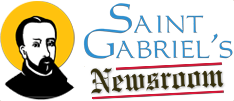Are You A Mason Without An Apron?
Not so long ago, Freemasonic lodges in nations such as the United States and Canada were teaming with members. Today, most are suffering the same fate as those of other fraternities such as the Odd Fellows, the Elks, and the Moose Hall — aging memberships and declining numbers.
Not so long ago, Freemasonic lodges in nations such as the United States and Canada were teaming with members. Today, most are suffering the same fate as those of other fraternities such as the Odd Fellows, the Elks, and the Moose Hall — aging memberships and declining numbers. However, the highest Masonic leaders are probably not overly concerned, because the Masonic influence on modern Western culture has never been stronger.
Ask a man on the street, chosen at random, what his personal philosophy is concerning morality, politics and religion. A large majority of such subjects would agree with most or all of the following propositions: democracy is the best form of government; religion ought to be separate from the state; belief in God is okay but organized religion is an obstacle to human progress; religious schools should not receive public funds; one religion is as good as another; divorce is often necessary and isn’t bad for society; abortion should be legal; censorship is generally bad; freedom of expression, of conscious and of the press are sacred; we should strive for human equality and maximize human liberty; gays should be allowed to marry; the state has no right to legislate morality; everyone has the right think, believe, say or do whatever they please, as long as they are not hurting anyone else; multiculturalism is good; all forms of discrimination are bad; and tolerance and pluralism are the marks of an enlightened and civilized people.
Now this, more or less, just happens to be, or follows from, the liberal, humanistic and secular ideology that Masonry has been propagating since its inception in England in the early 18th century. Back then, most people would have seen this ideology as radical, evil and dangerous. Europe was ruled by monarchs, allied with one or another form of Christianity. People believed that the monarchs’ laws were based on God’s laws and their right to rule came, not from the citizens, but from God. Freemasonry set out to change all that.
The initial major step was the creation of the first modern secular democracy, the United States, a truly Masonic nation. The second major step, which almost immediately followed it, was the French Revolution, inspired and directed by French Masonry.
Over the course of time, through political intrigue, revolutions, wars, economic black mail, control over education and intense propaganda, Masonry gained control over most nations and spread its philosophy throughout most of the world. So much so that, today, the typical citizen in a Western nation is truly a Mason without an apron. That is, he believes in the Masonic philosophy without being a member of the Craft. What’s more, he is ignorant of that fact.
Masonry has always seen itself as the propagator of liberal, secular humanism. “The foundation of Masonic morality or ethics … is … secular humanism” (The Hidden Power Behind Freemasonry, Lt. Col. Gordon “Jack” Mohr, 1990, page 160). The official publication of the Southern Rite of American Freemasonry proclaimed that every Mason is a teacher of the “Masonic philosophy to the community” and Freemasonry is, “the missionary of the new order – a Liberal order … in which Masons become high priests” (New Age Magazine, March 1959, Dr. James D. Carter, “Why Stand Ye Here Idle?” p. 155).
In the Garden of Eden, the devil convinced man to rebel against God’s rule and to decide good and evil for himself. “You will be like God, knowing good and evil,” the devil promised (Gen. 3:5). This is the essence and ultimate goal of Masonic liberalism. “In reality, in Freemasonry … man becomes his own god” (The Hidden Power Behind Freemasonry, p. 161). A once prominent Mason wrote, “…man is divine, and his divinity is within himself” (New Age Magazine, June, 1948, George H. Steinmetz, “Why Do You Go To The Lodge?” p. 335.) When man decides he is his own god, he necessarily ceases to obey the true God. He then becomes easy prey for the infernal powers that seek his destruction.
